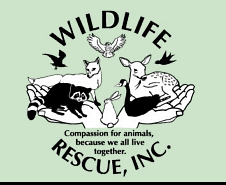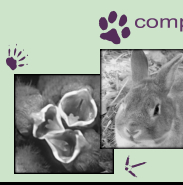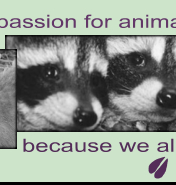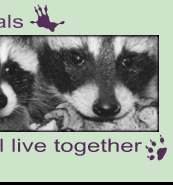Our
Patients and Residents
Watch a brief video on what we do
Due to limited resources
and the high numbers of wild animals in need, we are no
longer accepting farm or domestic animals. |
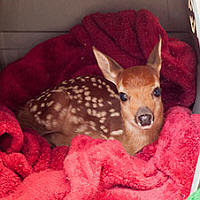 |
Wildlife Rescue, Inc is licensed to rehabilitate baby deer with spots (fawns). We get an extremely large amount of calls in May and June when mother deer have their babies. Many concerned people call because a fawn is left on itís own but this is normal when the fawn is very small since it canít travel with itís mother. Mom only returns to feed and clean her baby every 10 - 12 hours. |
|
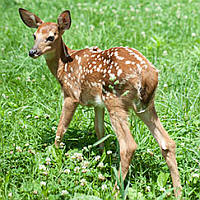 |
Later when the fawn is bigger she will travel with her Mom. We receive many fawns when their Momís are hit by cars and killed and when fawns are chased and/or bitten by domestic dogs. Do not ever chase a fawn in the heat of the summer. The stress can easily kill the baby. |
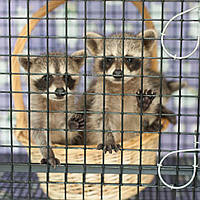 |
The majority of our little wildlife patients are raccoons. Most raccoons each season are from people who trap their mothers and relocate or kill her because they donít want her on their property. |
|
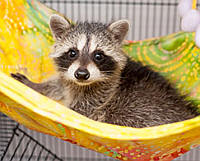 |
Later they find the babies. Also raccoons live in trees, so many fall out of trees and are injured when a tree is taken down. Always look for nests in trees before a tree is removed. |
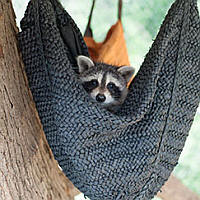 |
At Wildlife Rescue, Inc. all volunteers that feed and handle raccoons and fox are vaccinated for rabies. This is an important safety measure. When they are very little they live inside in large cages and slowly are moved to indoor/outdoor enclosures before release. |
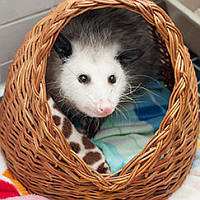 |
Opossums carry their babies in a pouch, which makes them North Americaís only marsupial. Some opossum babies come to us when their mother is hit by a car. The babies are often still alive inside her pouch and can be saved. Baby opossum that are found alone have probably fallen out of the motherís pouch and will need to be rescued since the mother will be unaware she has lost her baby. Opossum are extremely nocturnal and rarely seen during the day. |
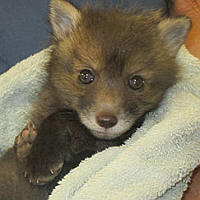 |
Unlike raccoons, who often get trapped because they like to nest in attics and barns, red fox live in dens that are dug into the ground. A red fox diet consists mainly of mice and they are excellent at keeping the rodent population in check. |
|
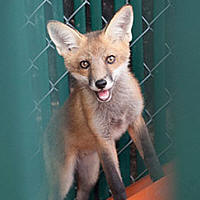 |
They are generally very shy and do not seek interaction with humans. For this reason we do not get as many orphaned fox at Wildlife Rescue but do rehabilitate a small number every year. Fox populations are going down in some states due to mange. If you see a fox that is losing fur or that has bald, scratchy patches, contact us. |
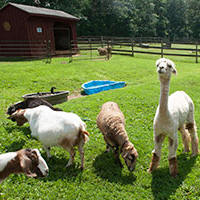 |
Wildlife Rescue, Inc. is also a sanctuary for a number of farm animals that were rescued. We have
llamas, pigs, sheep, goats, a donkey and geese.
|
